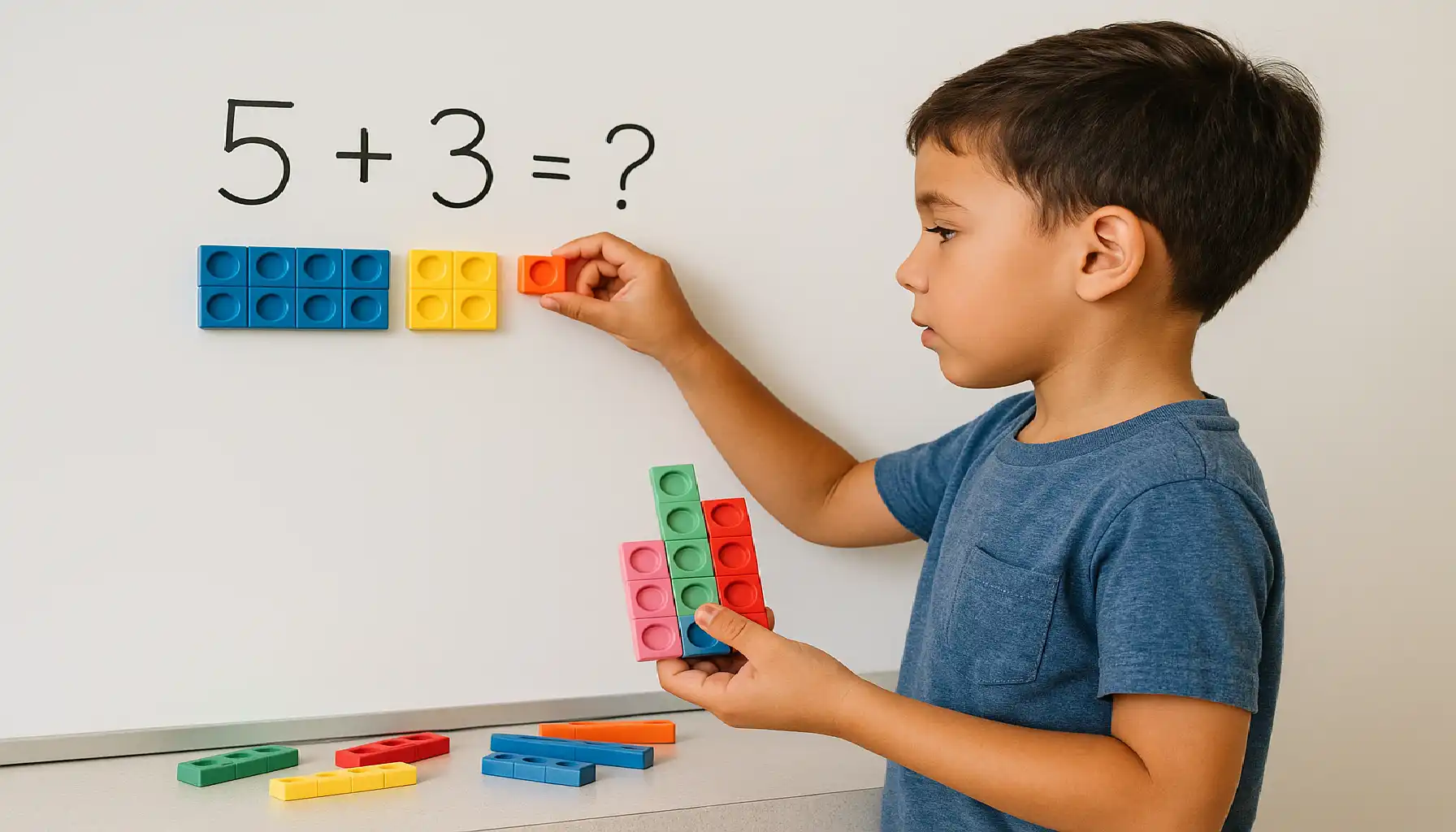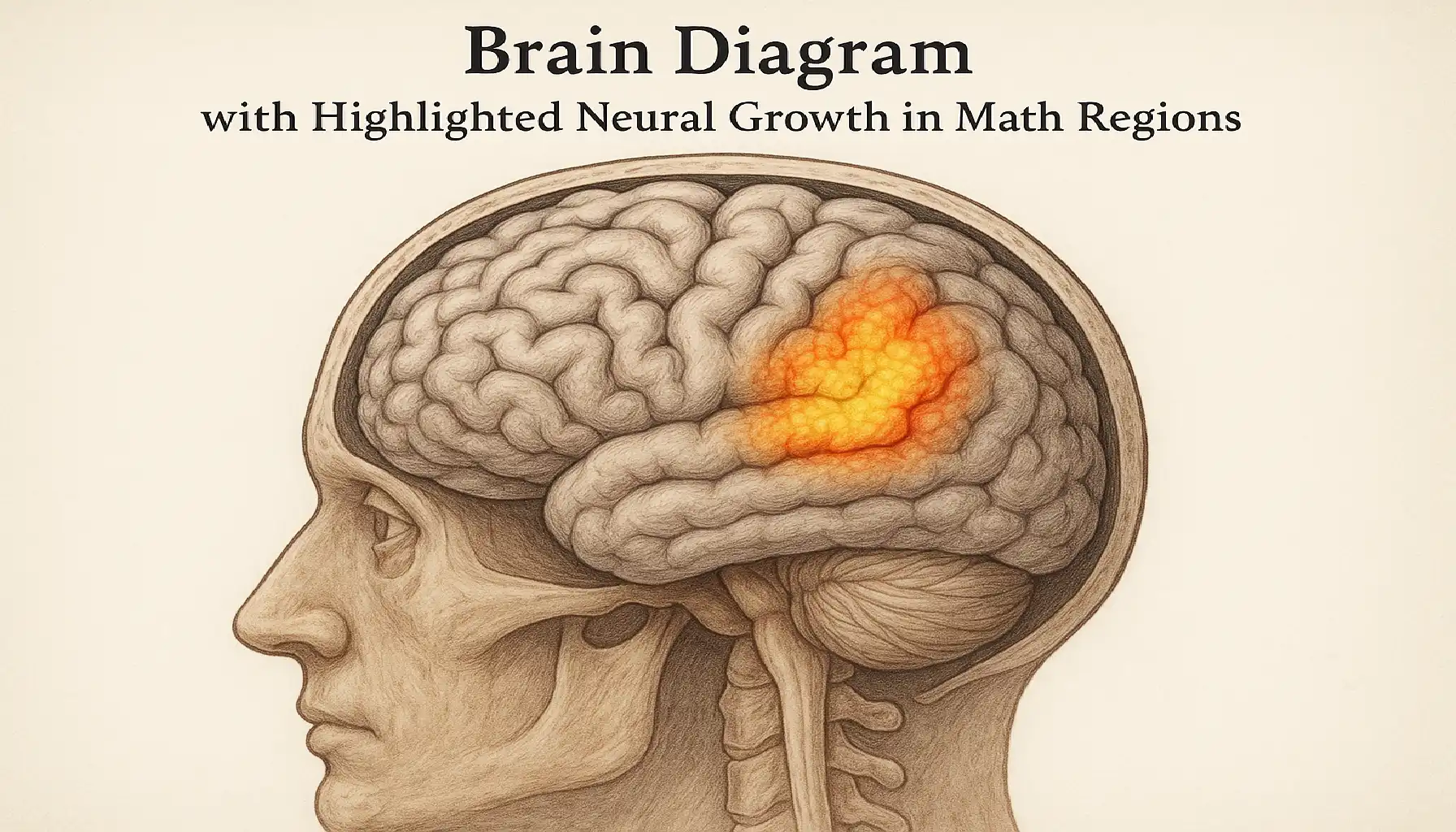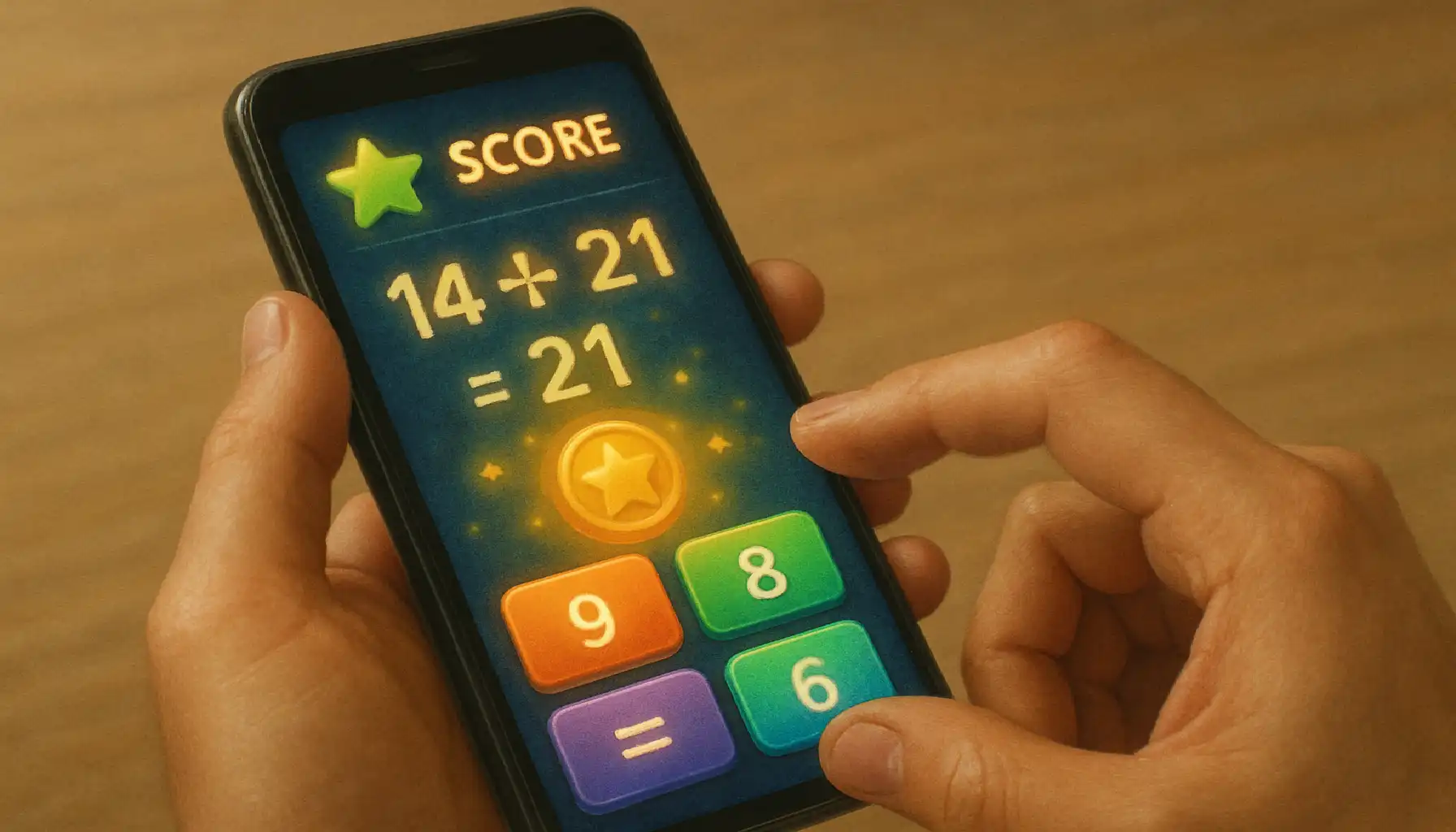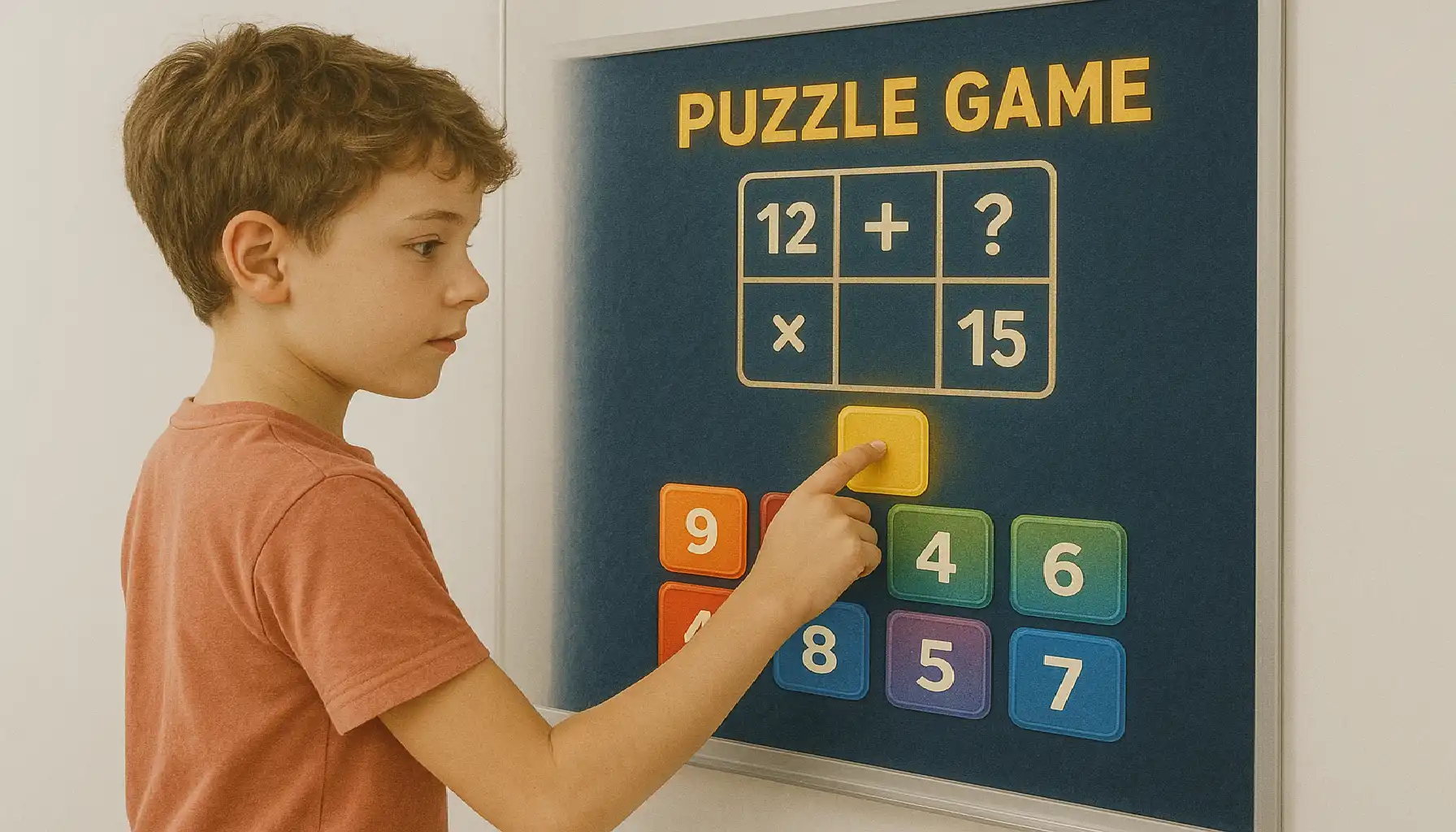Anyone Can Improve at Math With the Right Approach

Contents:
You don’t need a special gift to shine at math. Studies show that anyone can strengthen their number skills through practice and the right strategies. Your brain can form new connections when you learn concepts step by step. As you practice, these connections get stronger and solving problems becomes easier.
You’ll learn clever visual tricks and everyday habits that turn numbers into second nature. Each method gently reshapes how your brain exercises, and with a bit of focus and consistency, you’ll find yourself mastering math concepts through targeted brain-training routines.

Why Math Isn’t Just for “Gifted” People
Math ability is not a fixed trait. You can learn any concept with the right steps. You don’t need a label of “math person” to succeed. Many wonder how to get better at math, but the first step is to drop these labels. This insight explains how do you get better at math through repeated effort.
Anyone can adopt effective strategies to boost skill. You can use visual aids, step-by-step methods, and spaced practice. Each technique adds clarity and builds confidence. That approach answers how I become better at math and how to get better at SAT math for learners of all levels.
Believing you cannot improve holds you back. You can set clear goals, track progress, and celebrate small wins. Consistent effort leads to steady gains. Here's how to become better at math comes alive in your daily routine.

Myths That Stop You From Learning
“You’re either born with it or not”
“I’m too old to learn”
“Girls aren’t good”
Age Doesn’t Matter—Math Improvement Is for Everyone
Adults often carry anxiety from past struggles. You can learn how to get better at math for adults by starting with simple everyday tasks like budgeting and shopping lists.
Young learners benefit from targeted practice at each grade level. Whether you explore how to get better at math 4th grade, how to get better at math 5th grade, or how to get better at math 6th grade, clear examples and regular review build a strong base.
As students advance, questions about how to get better at math 7th grade and how to get better at math 8th grade guide them toward algebraic thinking. High schoolers asking how to get better at math in high school gain from real-world problems like finance and data analysis.
Age Group | Focus Area | Key Skills Developed |
Adults | Mental math, budgeting | Quick calculations, financial planning |
Elementary (4th–6th) | Basic operations, word problems | Numerical fluency, reading comprehension |
Middle School (7th–8th) | Algebra prep, fractions | Abstract thinking, ratio reasoning |
High School | Geometry, algebra, SAT prep | Spatial reasoning, critical analysis |
Structured drills and real-life applications bridge gaps for all ages. You can apply the same mindset—from beginners to advanced learners—to tackle new challenges. Start today with tasks that match your level and watch your skills grow steadily.

Mental Math Is a Trainable Skill
Anyone can sharpen mental calculations with simple daily drills. You can start by setting aside five minutes each day for quick number challenges. The brain adapts when you push it to solve problems without paper or a calculator. These steps show how to get better at mental math through consistency.
Use flashcards and repetition to lock basic facts into memory. You can quiz yourself on addition, subtraction, and multiplication tables. Over time, recall becomes automatic under pressure. This method teaches how to become better at mental math by reinforcing neural pathways.
Visualization techniques also speed up your work. Picture numbers on an imaginary number line or break them into easier chunks. That mental image helps you solve multi-step problems in your head. This practice illustrates how to get better at quick math for everyday tasks.
Combine these tools into a daily routine and track your progress. You can note your fastest solve times and aim to beat them next session. Celebrate small wins and adjust your drills as you grow. This approach makes getting better at math feel achievable and even fun.
Quick Tips to Improve
Break numbers into parts: Split large figures (e.g., 47 + 38 as 40 + 30 and 7 + 8) for simpler addition.
Use patterns (like multiplying by 5s or 9s): Leverage tricks—5 × 8 is half of 10 × 8; 9× facts follow a finger trick—to speed recall.
Estimate before calculating: Round numbers to check if your final answer is in the right range and catch errors early.
Use Technology to Build Confidence and Accuracy
Digital tools turn practice into play with clear goals and instant feedback. Many people install apps to get better at math because they add challenge and fun. You can find games to get better at math in app stores. These tools adjust to your skill level and reward each success.
Pick a get better at math app that tunes problems to your progress. You spend time on concepts you need to master. Each session stays fresh and engaging. Daily use builds confidence and speed.

Rank | Tool/App Name | Best For | Platform |
1 | Mind Elevate | Engaging puzzles & adaptive practice | Web /iOS/Android |
2 | Photomath | Step-by-step problem solving | iOS/Android |
3 | Prodigy Math | Elementary students (ages 6–14) | Web/iOS |
4 | Brilliant | Adult learners and logic development | Web/iOS/Android |
Practice Strategies That Actually Work
Spaced repetition beats last-minute cramming every time. Review concepts in short, regular sessions instead of marathon study blocks. That approach shows clear ways to get better at math over weeks. It strengthens memory and builds confidence. Avoid passive reading and highlight what you don’t yet master.
Solve real-world problems and learn with peers. Work through practical scenarios like budgeting or cooking ratios. Study groups let you explain ideas and catch mistakes early. This method teaches you how to get better at math fast by applying concepts right away. It also makes learning more social and fun.
Set goals for summer practice and stick to a routine. Daily consistency prevents skills from slipping over long breaks. Plan brief review sessions so you know how to get better at math over the summer without feeling overwhelmed. Cramming backfires and adds stress. A steady pace keeps your mind sharp year-round.
Proven Daily Math Habits:
20 minutes of focused review: Short, intense sessions cement new skills.
Mix old and new problem types: Blend familiar tasks with fresh challenges to keep growth steady.
Use a math journal: Record errors, tricks, and reflections to guide future practice.
Special Tips for Learning Math with ADHD
Breaking lessons into small chunks helps ADHD learners focus. Use visuals like color-coded charts and diagrams to map each step. Add movement-based learning by solving problems on a whiteboard or using floor number lines. Try gamified practice with apps that reward correct answers and track progress. These strategies show how to get better at math with adhd by keeping sessions active and engaging.
Also read: Free Online Dyscalculia Test for Adults & Children.

What Science and AI Say About Math Ability
Think boys were born with slide rules in their hands? That myth fuels the question are men better at math. Historical biases once claimed are men naturally better at math than women, but research disproves those ideas. Science now shows that biology plays a minor role compared to experience.
Schools and parents ask are boys or girls better at math when comparing test scores. Studies reveal that early access to quality instruction matters far more than gender. Both groups perform equally when given the same resources and encouragement. This helps on how to get better at basic math.
AI tools also join the debate on math skill. Some wonder is deepseek better at math than chatgpt for solving complex problems. Others compare accuracy and speed to ask is chatgpt or deepseek better at math in tutoring settings. Each system uses different models, but both excel at demonstrating step-by-step solutions.
Tech giants keep pushing innovation, leading many to ask is gemini or chatgpt better at math for educational use. These platforms adapt to user input and provide instant feedback. They show how AI can reinforce human learning by explaining concepts in multiple ways.
What Studies Reveal About Gender
Early exposure matters more than gender: Equal access to instruction levels the field.
Encouragement boosts girls’ performance: Positive feedback closes any confidence gap.
Practice evens out natural advantage claims: Regular drills build skill for everyone.




